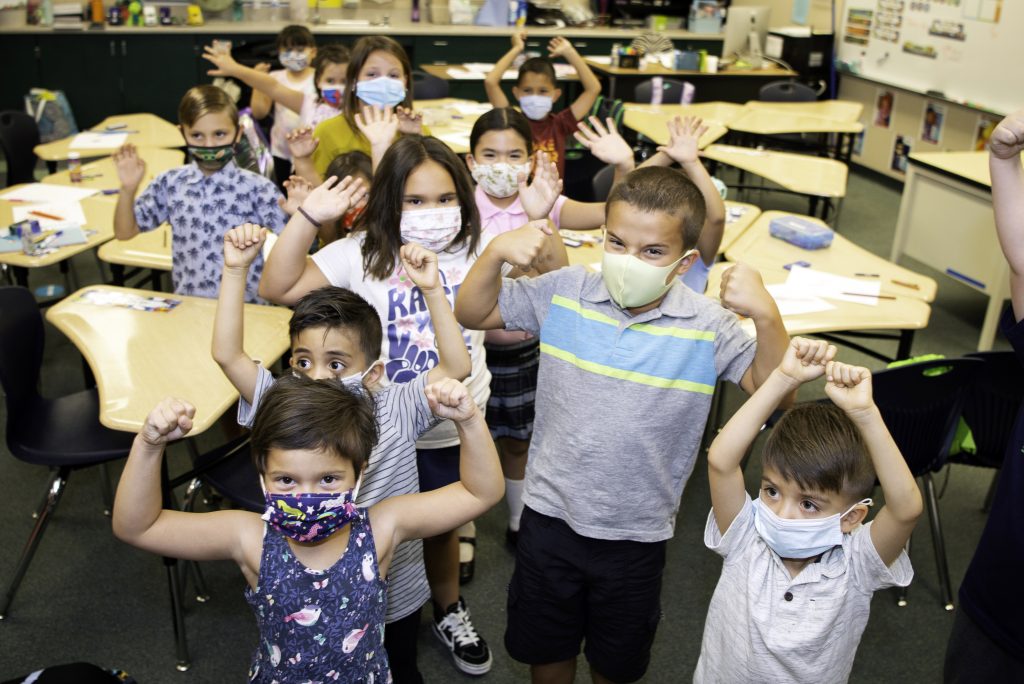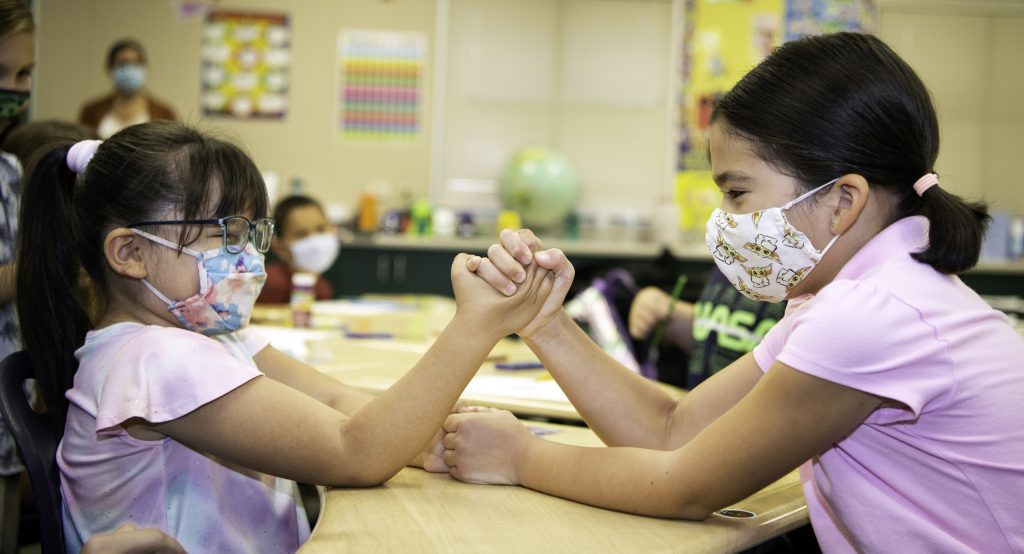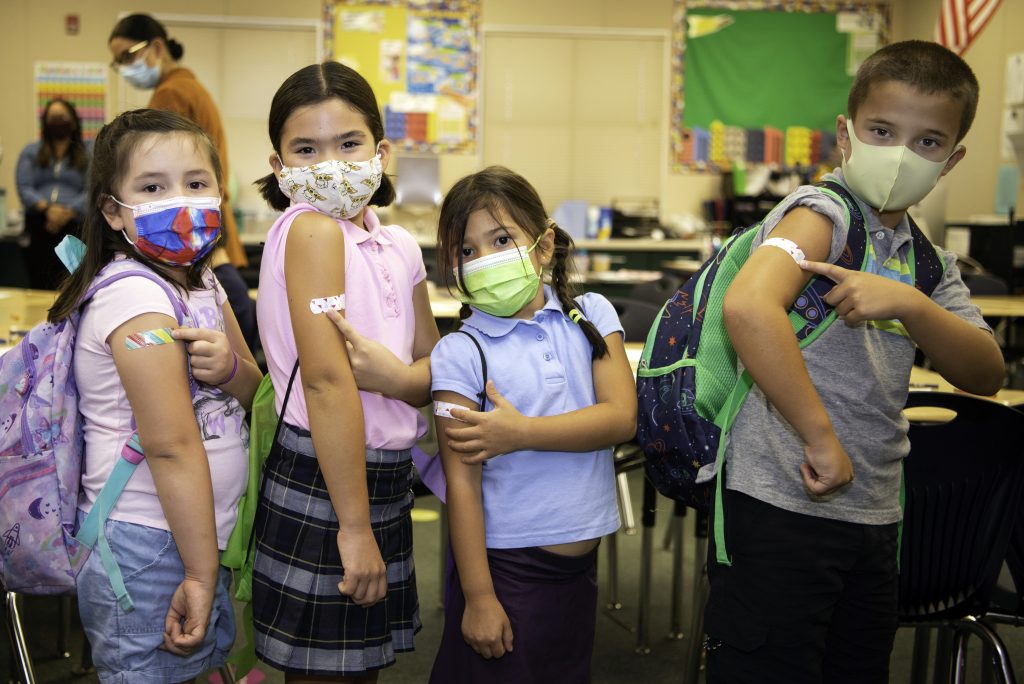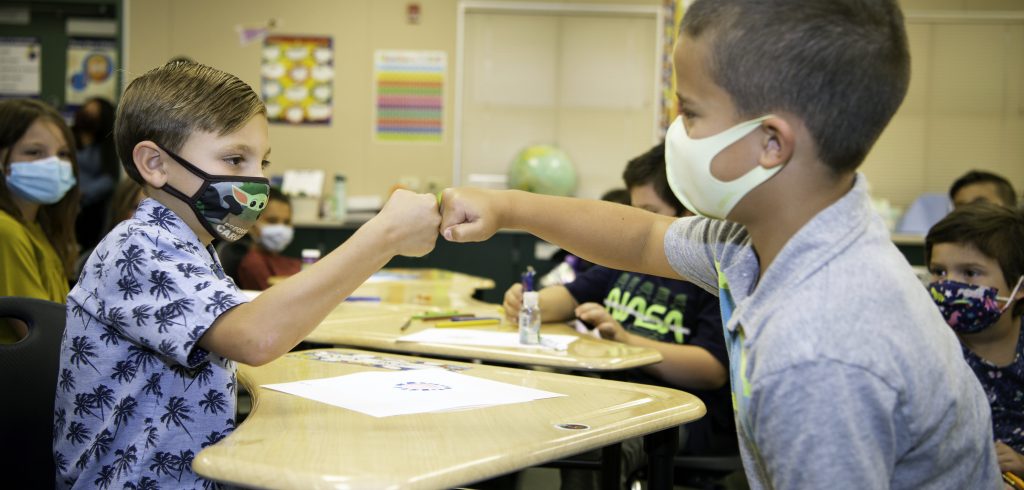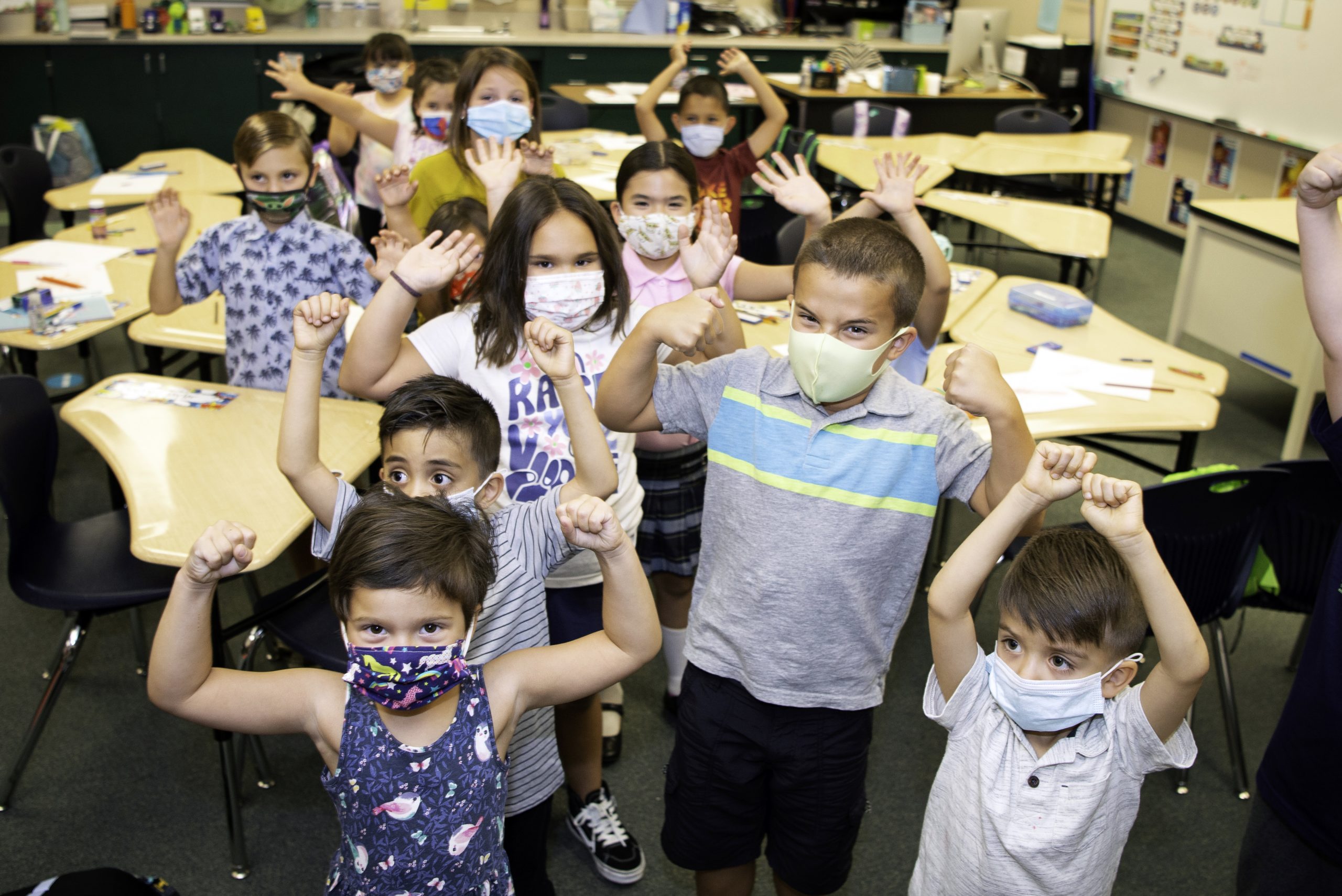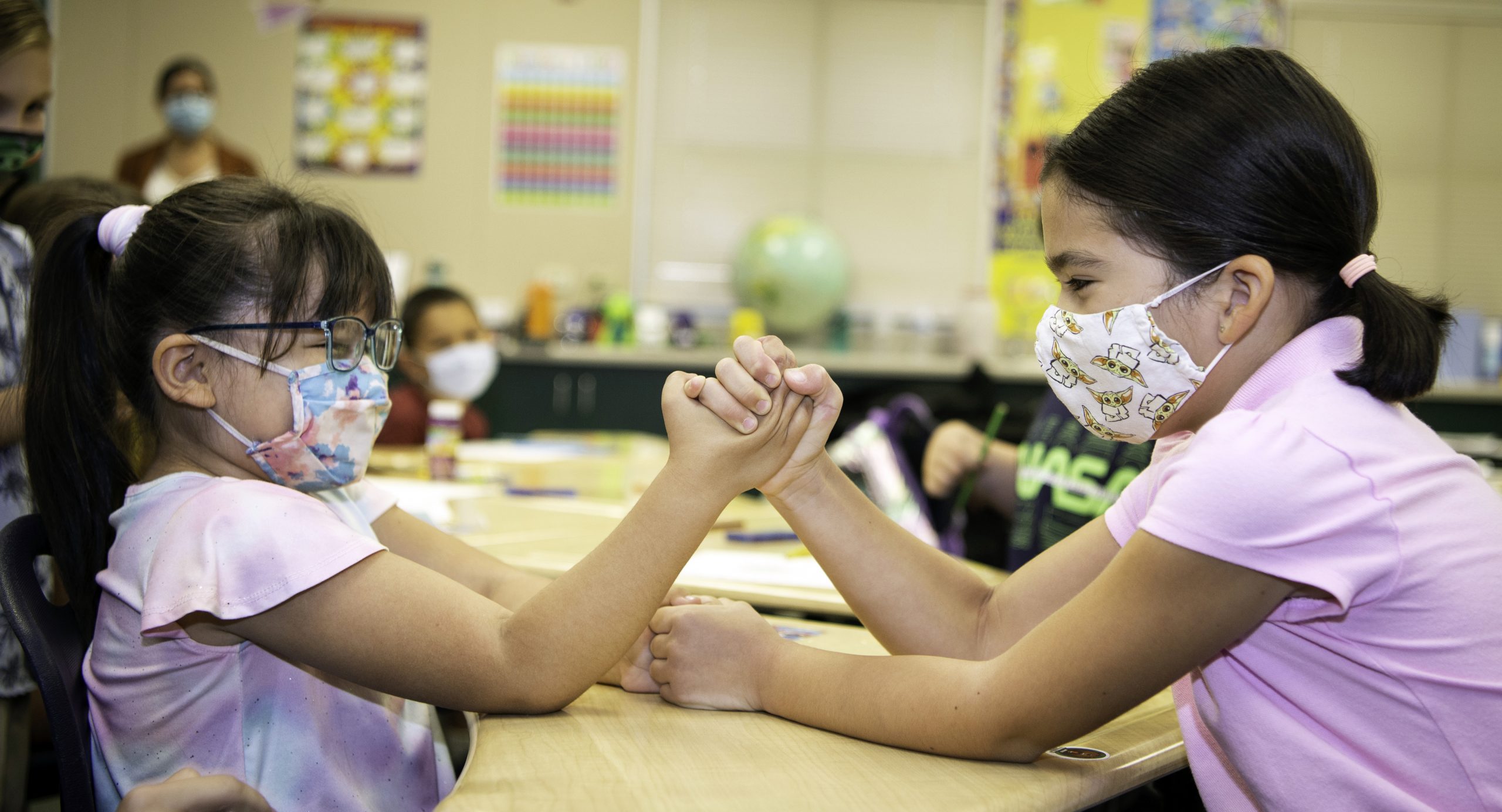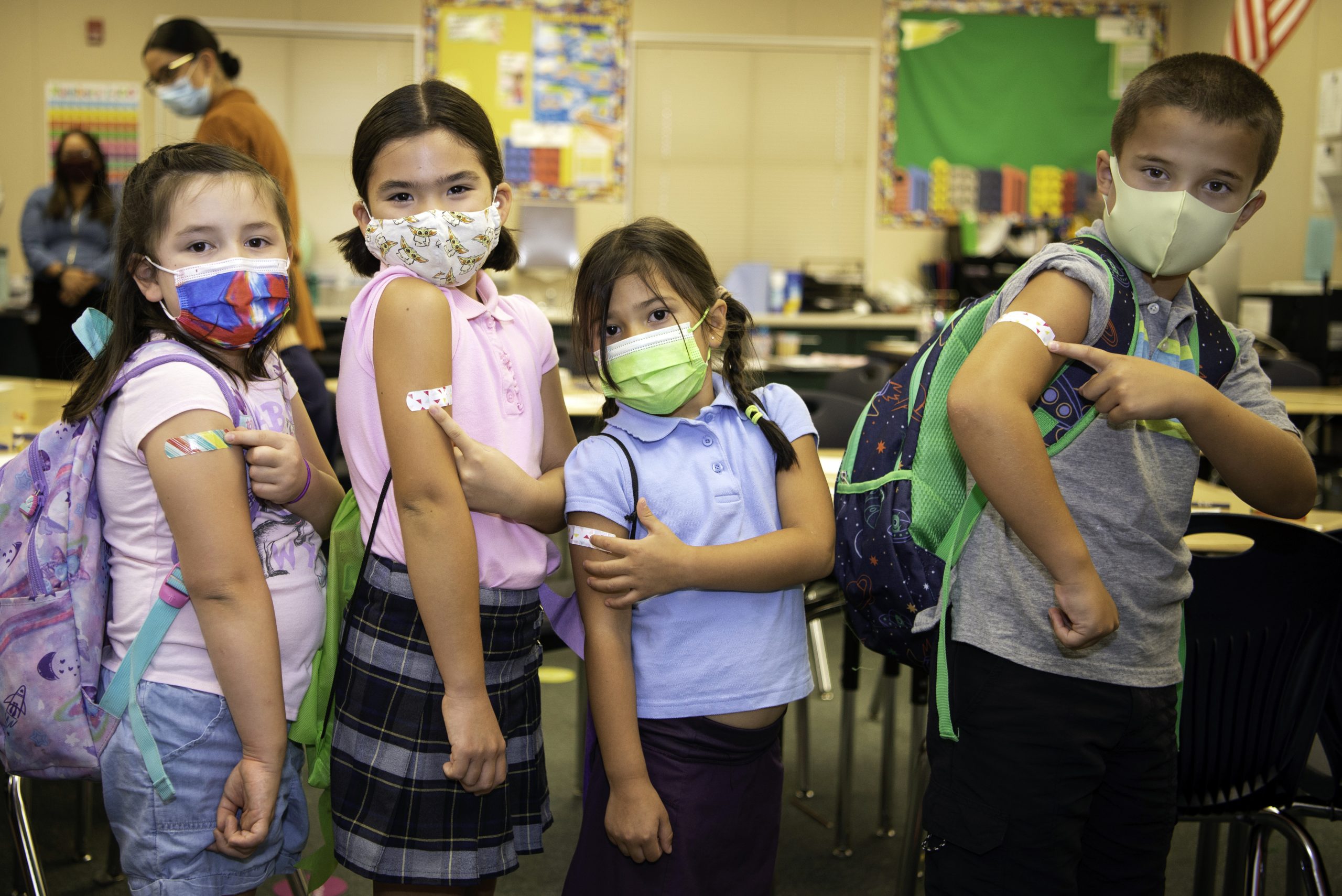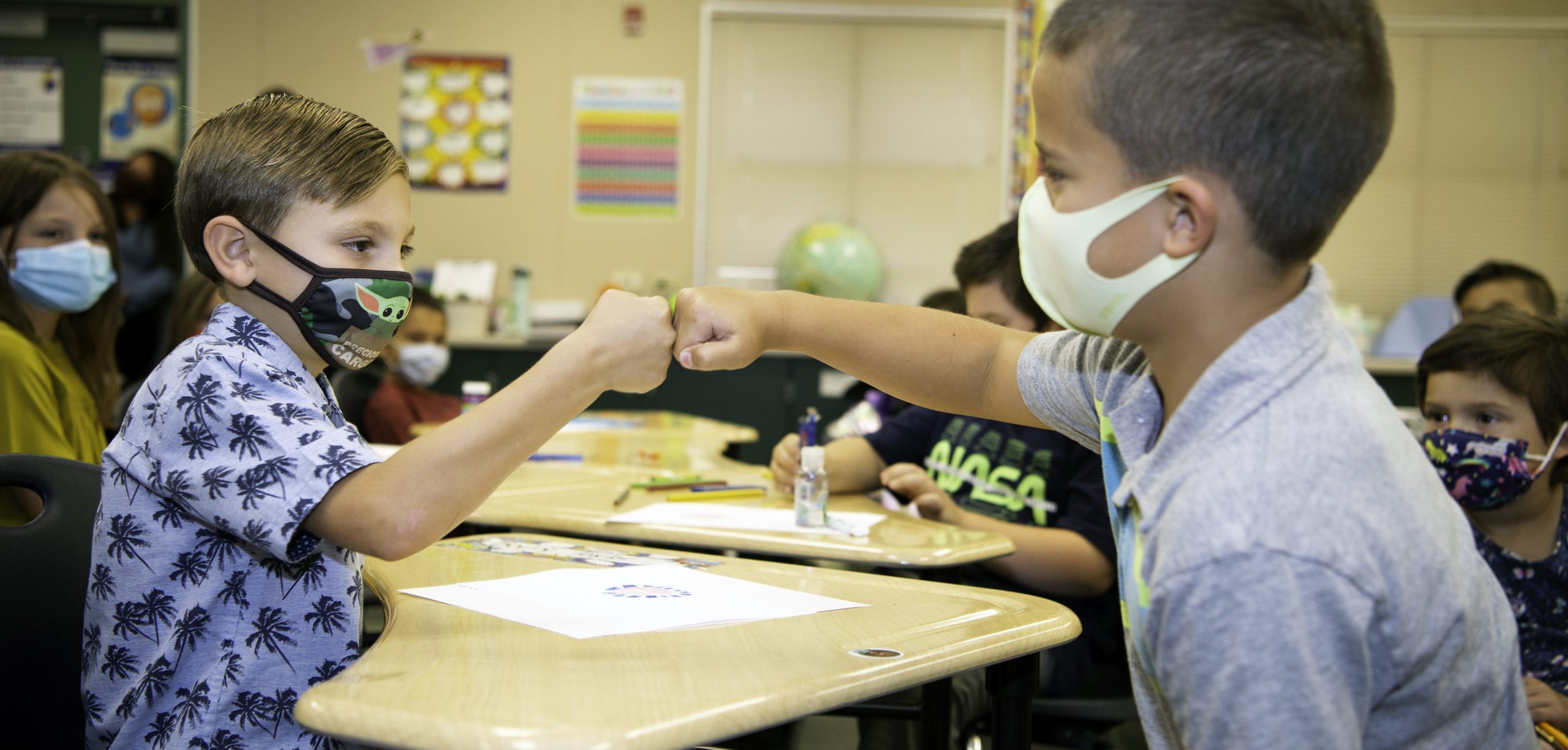Pediatric COVID-19 Vaccines
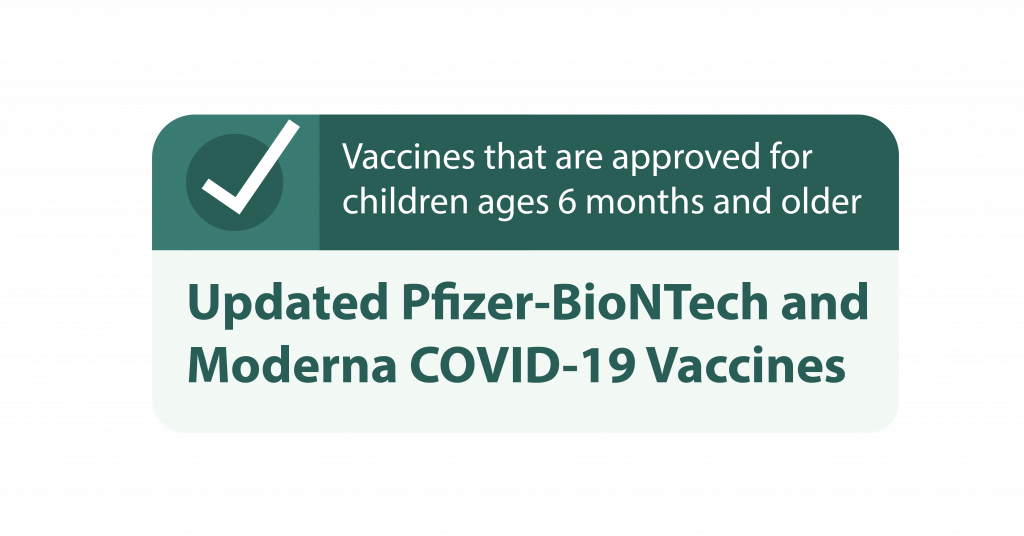
COVID-19 Vaccines are available to people 6 months and older who live, work or study in San Bernardino County.
About Pediatric COVID-19 Vaccines
The Center for Disease Control and Prevention (CDC) recommends everyone ages 6 months and older receives the 2023-2024 updated COVID-19 Vaccines: Pfizer-BioNTech, Moderna, or Novavax, to protect against illness.
To Be Up to date:
- Everyone aged 5 years and older should get 1 dose of an updated COVID-19 Vaccine
- Children 6 months-4 years need multiple doses of COVID-19 Vaccine to be up to date, which includes at least 1 dose of the updated COVID-19 vaccine.
- People who are moderately or severely immunocompromised may get additional doses of updated COVID-19 vaccine.
- None of the updated 2023-24 COVID-19 Vaccines is preferred over another
Visit the CDC Vaccine Recommendations Guide for Routine and Immunocompromised populations for more information.
Although fewer children have been infected with COVID-19 compared to adults, children can:
- Be infected with the virus that causes COVID-19
- Get sick from COVID-19
- Spread COVID-19 to others
Get a COVID-19 vaccine for your child as soon as you can.
- COVID-19 vaccines are safe and effective.
- COVID-19 vaccines have been used under the most intensive safety monitoring in U.S. history.
- Your child will not get the COVID-19 virus from any COVID-19 vaccine, including the Pfizer-BioNTech (Comirnaty) COVID-19 vaccine or Moderna (Spikevax( COVID-19 vaccine.
- Your child may get a COVID-19 vaccine and other vaccines at the same visit or without waiting 14 days between vaccines.
Cases of myocarditis and pericarditis in adolescents and young adults have been reported more often after getting the second dose than after the first dose of one of the two mRNA COVID-19 vaccines, Pfizer-BioNTech or Moderna. These reports are rare and the known and potential benefits of COVID-19 vaccination outweigh the known and potential risks, including the possible risk of myocarditis or pericarditis.
Children who get infected with COVID-19 can also develop serious complications like multisystem inflammatory syndrome (MIS-C)—a condition where different body parts become inflamed, including the heart, lungs, kidneys, brain, skin, eyes, or gastrointestinal organs. Since the pandemic began, more than 2,300 cases of MIS-C have been reported in children ages 5 through 11 years. Children with underlying medical conditions are more at risk for severe illness from COVID-19 compared with children without underlying medical conditions.
To learn more about (MIS-C): MIS-C FAQ
See the CDC’s statement on COVID-19 Vaccines for Children and Teens for further info and clinical data.
Pfizer and Moderna (Spikevax) COVID-19 Vaccine
Which COVID-19 vaccine should my child get?
It is recommended that everyone 6 months and older receive at least 1 dose of the updated vaccine.
The updated Pfizer and Moderna vaccines for 2023-2024 are recommended for everyone 6 months and older.
- Infants and toddlers 6 months to 4 years of age who are unvaccinated are recommended for 2-3 updated doses. Those who have received prior doses are recommended for 1-2 additional doses.
- Everyone 5 years of age and older is recommended for a single updated dose as long as it’s been at least 2 months since the last dose.
- Alternatively, the updated Novavax vaccine for 2023-2024 may be given to persons 12 years of age and older.
Talk to your healthcare provider to see if additional doses are recommended for you. People with weakened immune systems may receive additional updated doses.
Help Protect Your Child and Your Family
Getting a COVID-19 vaccination can help protect your child from getting COVID-19. Early information shows that the vaccines may help keep people from spreading COVID-19 to others. They can also help keep your child from getting seriously sick even if they do get COVID-19. Help protect your whole family by getting yourself and your children vaccinated against COVID-19.
COVID-19 vaccines are safe
- While COVID-19 vaccines were developed rapidly, all steps have been taken to ensure their safety and effectiveness.
- COVID-19 vaccines were developed using science that has been around for decades.
- COVID-19 vaccines are not experimental. They went through all the required stages of clinical trials. Extensive testing and monitoring have shown that these vaccines are safe and effective.
- COVID-19 vaccines have received and continue to undergo the most intensive safety monitoring in U.S. history.
COVID-19 vaccines are effective
- COVID 19-vaccines are effective. They can keep you from getting and spreading the virus that causes COVID-19. Learn more about the different COVID-19 vaccines.
- COVID-19 vaccines also help keep you from getting seriously ill even if you do get COVID-19.
- Getting vaccinated yourself may also protect people around you, particularly people at increased risk for severe illness from COVID-19.
Preparing for Your Child’s Vaccination Visit
- Tips for how to support your child before, during, and after the visit.
- Talk to your child before the visit about what to expect
- Tell the doctor or nurse about any allergies your child may have.
- Comfort your child during the appointment.
- After your child’s COVID-19 vaccination, you will be asked to stay for 15–30 minutes so your child can be observed in case they have a severe allergic reaction and need immediate treatment.
- For more information on preparing for your child’s vaccination, please visit: CDC COVID-19 Vaccination for Children.
Vaccination of Minors FAQs
- Check with your child’s healthcare provider about whether they offer COVID-19 vaccination.
- Visit our county’s vaccine appointment website or MyTurn for more appointment information.
The federal government does not have specific requirements for medical consent for vaccination. States/jurisdictions have medical consent laws that address the circumstances under which a medical provider must seek consent prior to a medical procedure and the processes for obtaining that consent. These laws vary across jurisdictions. Providers may also be subject to policy requirements for consent within their own organizations.
To access COVID-19 vaccine in the United States, a provider must enroll in the Centers for Disease Control and Prevention (CDC) COVID-19 Vaccination Program and sign the applicable CDC Provider Agreement. The CDC COVID-19 Vaccination Program Provider Agreement requires the provider to comply with applicable patient assent and consent laws in their state/jurisdiction for administration of COVID-19 vaccines.
If a minor is vaccinated at a County vaccine clinic or special event, a consent form will be required for each child.
NOTE: At any San Bernardino County-operated clinic, a parent or legal guardian is required to both sign the consent and remain present with the minor in order for the child to be vaccinated.
Some state, tribal, and territorial laws may require a parent or legal guardian to accompany an eligible minor to receive vaccinations. Some jurisdictions’ laws may allow parent/guardian consent without a requirement to be physically present for the vaccination if the provider is given evidence of the consent prior to vaccination. Providers may also have to comply with policy requirements determined by their organization.
At any San Bernardino County operated clinic, a parent or legal guardian is required to both sign the consent and remain present with the minor (aged 17 or younger) in order for the child to be vaccinated.
Children 6 months- 11 years old receive a smaller dose of COVID-19 Vaccine than teens and adults 12 years and up. COVID-19 Vaccine dosage is based on age on the day of vaccination, not on a child’s size or weight.
Per the FDA, “The vaccine has been known as the Moderna COVID-19 Vaccine, and will now be marketed as Spikevax, for the prevention of COVID-19 in individuals 18 years of age and older”.
Updated Vaccines:
- The virus that causes COVID-19 is always changing, and protection from COVID-19 vaccines declines over time. Receiving an updated COVID-19 vaccine can restore protection and provide enhanced protection against the variants currently responsible for most infections and hospitalizations in the United States.
Original Vaccines:
- Previous COVID-19 vaccines are called “original” because they were designed to protect against the original virus that causes COVID-19.
- As of September 12, 2023, the Pfizer-BioNTech and Moderna COVID-19, Bivalent vaccines are no longer authorized for use by the FDA in the United States. Updated Pfizer-BioNTech and Moderna COVID-19 vaccines are being used for all age groups.
Side effects after getting a COVID-19 vaccine can vary from person to person. Please review CDC for more information.

